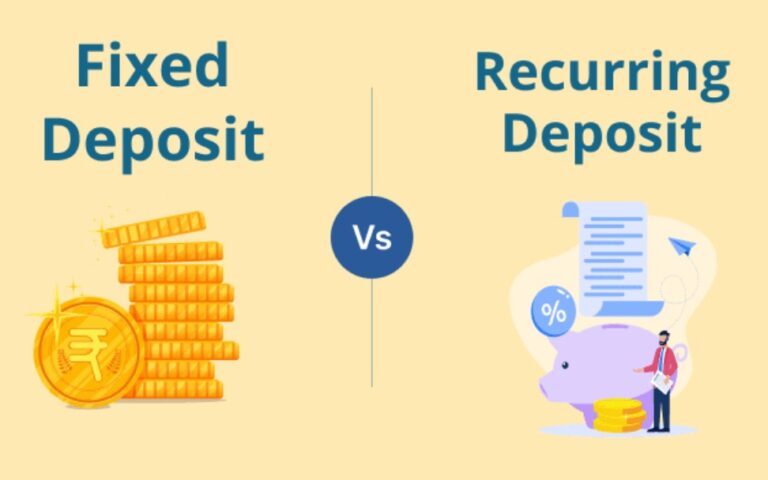
Financial Advice NZ
Navigating the intricacies of personal finance can be a daunting task, but with the guidance of one of the best and certified financial advisors Auckland, you can embark on a journey towards financial security and prosperity. In this comprehensive guide, we will explore the invaluable role of a certified advisor in helping you define your financial goals, create a customised plan, and navigate the ever-changing landscape of investments and savings.
Whether you’re looking to build wealth, secure your retirement, or plan for major life events, this guide will provide you with the knowledge and tools to make informed decisions for a brighter financial future.
Let’s embark on this transformative journey together!

Understanding the Role of a Certified Financial Advisor
A certified financial advisor is a professional who has undergone rigorous training and obtained relevant certifications to provide expert advice on various financial matters. Their expertise extends beyond simple budgeting and saving strategies.
They possess in-depth knowledge of investment management, tax planning, retirement planning, insurance, and estate planning. By working with a certified advisor, you can tap into their knowledge and experience to make informed decisions and navigate the complexities of the financial world.
Certified financial advisors Auckland offer a wide range of benefits. They can help you set realistic financial goals, develop a customised plan, and provide ongoing guidance and support. They offer unbiased advice based on your specific needs and circumstances, ensuring that your financial plan is tailored to your individual goals and risk tolerance.
Moreover, they stay up-to-date with the latest industry trends and regulations, providing you with peace of mind knowing that your finances are in capable hands.
Assessing Your Financial Situation
Before diving into the world of financial planning, it is essential to assess your current financial situation. This evaluation will serve as the foundation for creating an effective plan. To assist you, we have put together a checklist or questionnaire that covers various aspects of your financial life, including income, expenses, assets, and debts. By understanding where you stand financially, you can identify areas for improvement and set realistic goals.
Identifying Financial Goals
Once you have assessed your financial situation, it’s time to identify your financial goals. These goals can be short-term, such as paying off debt or saving for a vacation, or long-term, such as planning for retirement or purchasing a home. By clearly defining your goals, you can prioritise your financial decisions and allocate resources accordingly. This step is crucial as it gives you a sense of purpose and direction, helping you stay motivated throughout your financial journey.
Creating a Budget
Budgeting is the cornerstone of financial planning. It allows you to track your income and expenses, ensuring that you are living within your means and making progress towards your goals. To create an effective budget, start by tracking your expenses for a few months to identify patterns and areas where you can cut back. Set realistic spending limits for different categories and monitor your progress regularly. Remember, a budget is not set in stone; it can be adjusted as your circumstances change.
Managing Debt
For many individuals, managing debt is a significant part of their financial journey. It is essential to develop strategies to manage and reduce debt effectively. Start by prioritising your debts based on interest rates and consider negotiating lower rates or consolidating them into a single loan. Avoid excessive borrowing and focus on paying off high-interest debts first. By managing your debt wisely, you can free up resources to invest and save for your future.
Saving and Investing
Saving and investing are key components of financial planning. While saving helps you build an emergency fund and meet short-term goals, investing allows your money to grow over the long term. Educate yourself about different investment options such as stocks, bonds, mutual funds, and real estate. Understand your risk tolerance and diversify your investments to minimise risk. One of the top and certified financial advisors Auckland can guide you through the investment process, helping you choose investments that align with your goals and risk appetite.
Insurance Planning
Insurance is a crucial aspect of financial planning as it protects your finances from unexpected events. Life insurance provides financial security for your loved ones in case of your untimely demise, while health insurance safeguards you against exorbitant medical expenses. Property insurance protects your assets from damage or theft. Understand the different types of insurance and evaluate your needs based on your circumstances. A certified advisor can provide valuable insights on the appropriate coverage for your situation.
Tax Planning
Tax planning is about minimising your tax liability and maximising your after-tax income. It involves understanding tax laws and utilising available deductions and credits. Consider contributing to tax-efficient investment accounts such as individual retirement accounts (IRAs) or 401(k) plans. Consult with a tax professional to explore strategies for reducing your tax burden. A certified advisor can also provide guidance on tax-efficient investment strategies tailored to your financial goals.
Retirement Planning
Retirement planning is a critical aspect of financial planning. Start by estimating your future needs and the lifestyle you envision during retirement. Explore retirement account options such as 401(k) plans, IRAs, or pension plans. Consider factors such as contribution limits, tax implications, and employer matching. A certified advisor can help you determine the appropriate retirement savings strategy based on your goals and timeframe.
Estate Planning & Wealth Transfer
Estate planning involves creating a comprehensive plan for the distribution of your assets upon your death. It ensures that your wealth is transferred to your loved ones smoothly and minimises tax implications. Wills, trusts, and power of attorney documents are essential tools in estate planning. Consult with a certified advisor to develop a personalised estate plan that aligns with your wishes and protects your wealth for future generations.
Evaluating and Engaging a Certified Financial Advisor
Finding the right certified financial advisor is crucial for a successful financial planning journey. Start by researching potential advisors and evaluating their qualifications and certifications. Consider their experience, areas of expertise, and track record. Schedule initial consultations to ask questions and assess their compatibility with your goals and values. The relationship with your advisor should be built on trust, open communication, and mutual understanding.
Conclusion
Financial planning is a lifelong journey that requires careful thought and consideration. By following the steps outlined in this guide, you can gain control over your finances and work towards achieving your goals.
Remember, seeking professional help from one of the top and certified financial advisors Auckland can provide you with the expertise and guidance needed to navigate the complexities of financial planning successfully. Take the first step today and start building a secure financial future.







